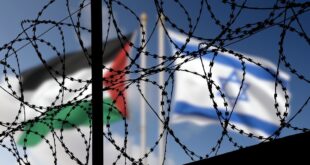This morning news from Iraq are filled with reports of government forces’ successful operation in retaking Kurdish-held oil-rich Kirkuk.
Despite Kurdish Peshmerga resistance Iraqi security troops and predominantly Shiite Popular Mobilization Units (PMU) have taken back the key security outposts, including Kirkuk airport and Baba Karkar oil field, occupied by the Kurds in 2014.
Kurdish sources report uninterrupted pumping of oil, but fears of oil supply interruption from the second largest OPEC producer have already affected the prices which have registered a slight rise on global markets.
Important event has taken place in Iraqi Kurdistan yesterday, with the arrival of Qassem Soleimani, the commander of the Iranian IRGC, to Erbil for a meeting with Kurdish president Barzani for negotiations about reducing tensions in the region. Instead of with Barzani Soleimani reportedly successfully agreed with the family of recently deceased former Iraqi president, Jalal Talabani. The results have been witnessed today in rapid retaking of Kirkuk by Iraqi government forces in which Talabanis have reportedly sided with the Iraqi government.
However unpleasant the current situation is for the Kurdish KRG leadership, the timing of the referendum was clearly wrong, and it lacked any substantial foreign support which would have given its cause some legitimacy and chance of success.
While the global powers have many important differences when it comes to the Iraqi and Syrian conflict, there is one issue in Iraq where nearly all have concurring opinions – country’s territorial integrity and the priority of fighting terrorism.
Kurdish president Barzani’s decision to go ahead with the referendum at such an inopportune time has backfired today. Beside failing to gain international support for the Kurdish cause it has created further divisions within Iraqi Kurds. The coming Iraqi elections will probably cost Barzani his power position for good, and could – under the right outcome – fortify Abadi’s position in next year’s elections and help form the stable new Iraqi government in the immediate post-ISIS era – a great and crucial achievement from the regional stability perspective.
 Geostrategic Media Political Commentary, Analysis, Security, Defense
Geostrategic Media Political Commentary, Analysis, Security, Defense




